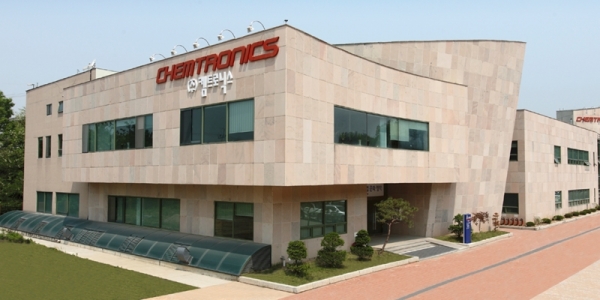
Samsung’s chip business was testing a new key chemical developed by a domestic supplier.
The tech giant was conducting a quality test of propylene glycol methyl ether acetate (PGMEA) provided by Chemtronics, sources said.
The move is significant as Samsung relied on PGMEA supplies from US and Japanese companies in the past.
Chemtronics’ PGMEA also contains almost no beta isomer, which is harmful to humans.
The use of harmful chemicals is a sensitive area for Samsung’s chip business as it was embroiled in a national scandal and legal battle where former employees allegedly contracted leukemia following their employment at the company’s fabs. The case was eventually settled.
Chemtronics’ chemical will likely finish being tested early next year at the latest, sources said.
The supplier recently said it plans to spend 17 billion won to expand its PGMEA production capacity from 10,000 tonnes a year to 25,000 tonnes.
Chemtronics also said its PGMEA had a purity of 99.999%, or 5N.
PGMEA is used as a solvent to mix different chemicals that are used during wafer fabrication, or semiconductor production.
The photoresist used during the extreme ultraviolet process in advanced chip production uses 5N PGMEA. Thinners used during lithography processes in general also use PGMEA.
Bottom anti-reflection coating (BARC) used during the lithography process also uses PGMEA as a solvent. BGMEA is also used in spin-on-hardmask (also spin-on-carbon), which is used to prevent patterns on wafers from collapsing.
Chemtronics said beta isomer levels in its PGMEA were 1 to 2ppm, compared to 10 to 20ppm of its rivals.
Some studies have shown beta isomer in PGMEA can cause sterility and deformation in infants.
Within Samsung, PGMEA is considered a level 2 hazardous substance. Level 1 means the substance can’t be used and level 2 means that it needs to be changed if there is an alternative.
Samsung plans to use Chemtronics’ PGMEA in the least important chip processes and expand them going forward.
Thinners will be the first the tech giant use them in; Chemtronics’ PGMEA will be supplied to Dongwoo Fine-Chem which will convert them into thinners.
Sources said purity is important but what probably attracted Samsung was the reduction in beta isomer.
PGMEA going forward will be divided into those that are “beta isomer-free” and others, they added.
Price will also be an issue as PGMEA is conventionally priced at US$2 per kg. Chemtronics’ reduction of beta isomer means it is likely more expensive than this as the production time will be longer.
Meanwhile, Compatriot chemical firm Jaewon Industrial also said it has developed a PGMEA with 1 to 2ppm beta isomer.
The company already has a production capacity of PGMEA and is also aiming to supply its chemicals to Samsung.

